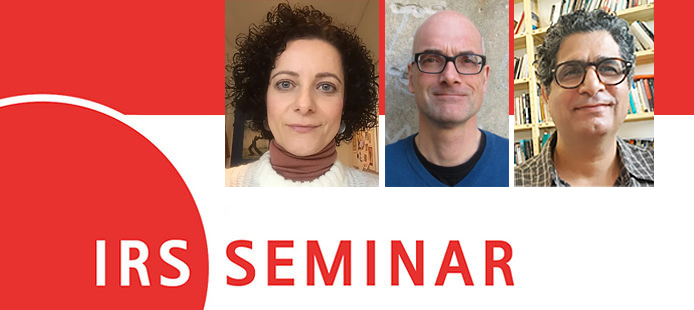Main Content
Building, Brokering and Bridging: Pandemic Urban Migrant Citizenship-making in Berlin, Copenhagen, and Tel-Aviv
IRS Seminar with Tatiana Fogelman, Henrik Lebuhn and Nir Cohen

Previously marginalized migrants were some of the most negatively impacted by the covid-19 pandemic and governmental responses to it. In this talk we examine how migrant-serving organizations (MSOs), which have grown in importance, responded to the pandemic and interfaced with the local state to facilitate migrants’ rights and access to resources. Conceptualizing MSOs as central elements of infrastructures of migrant urban citizenship, we highlight the processual and relational nature of citizenship as always made and remade through infrastructural actors' work and practices. Empirically we draw on interviews from three cases: Berlin, Copenhagen, and Tel Aviv. Having shared national responses to the pandemic but representing different migratory and citizenship regimes, the comparison of the three cases highlights the relevance of local governance contexts. We argue that while MSOs mobilized through the crisis to identify opportunities, these different local contexts resulted in different modes of citizenship-making at times of crisis: building, bridging and brokering. The presentation is based on a paper co-authored by the presenters as well as Daniela Krüger, Ma’ayan Ravid, and Lisa Chodorkoff.
Presenters’ Bios
Tatiana Fogelman is an Associate Professor at Roskilde University in Denmark, working across urban and migration studies. She is currently working on homeless migrants’ pandemic urban citizenship and transnationalization of Danish Jewish diasporic mobility. Her previous work on cultural politics of citizenship and nationness, local landscapes of belonging, migrant integration, and urban encounters across difference had appeared (before 2016 under the surname Matejskova) in journals such as Migration Studies, Geoforum, Social & Cultural Geography, Antipode, Urban Geography, and Urban Studies. She had also co-edited Governing through Diversity: Migration Societies in Post-Multiculturalist Times, published by Palgrave Macmillan, and special issues on the urban dimensions of migration industries (Urban Studies) and national-urban lens in migration studies (Ethnicities).
Henrik Lebuhn is Assistant Professor for Urban and Regional Sociology at Humboldt University Berlin. His research interests include urban politics in comparative perspective, urban citizenship, borders and migration, public space, care and the city. In 2019, he was a guest professor at TU Vienna. His work has appeared in journals such as IJURR, City, Critical Planning, Prokla and sub/urban. Most recently, he co-edited a special issue for Urban Studies with Tatiana Fogelman and Nir Cohen.
Nir Cohen is a Senior Lecturer in the Department of Geography at Bar Ilan University in Israel. His research interests include relations between states and diasporas, the politics of migration, and urban social geographies. His work on skilled migration policies, stratified urban citizenship, and socio-spatial relations in Israeli cities has appeared in leading international journals on urban and migration studies. In 2019 he was Visiting Professor for Urban Studies at TU Wien, Austria. Most recently, he co-edited the book Care and the City: Encounters with Urban Studies (Routledge, 2022) and a special issue Making cities through migration industries (Urban Studies, 2022).

